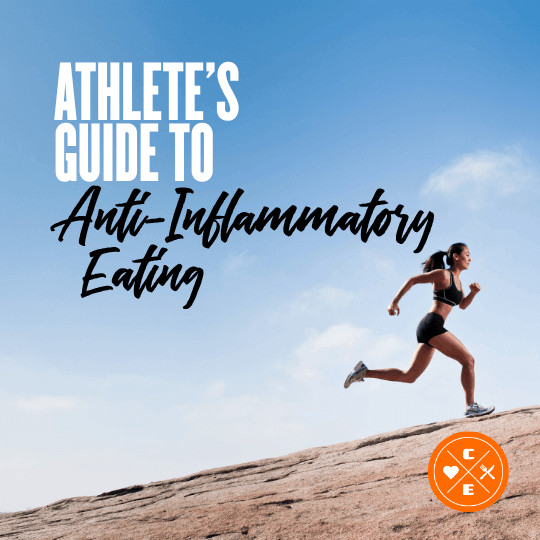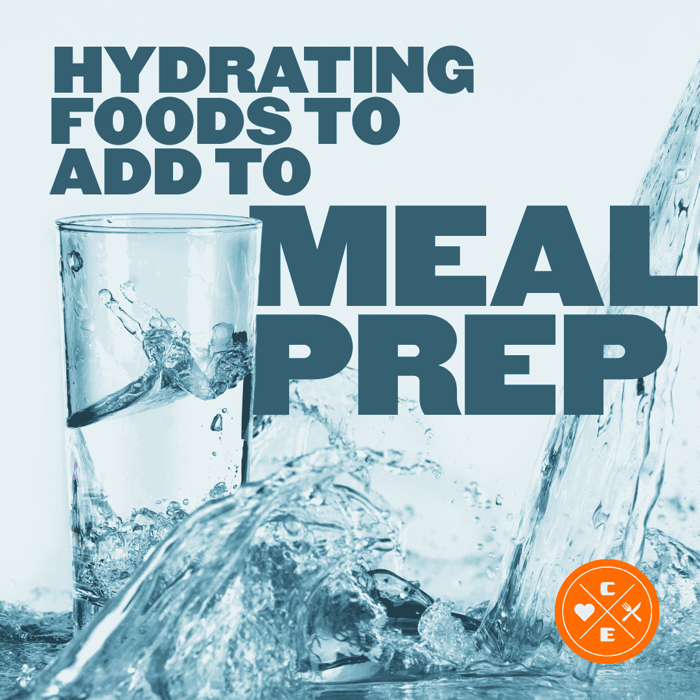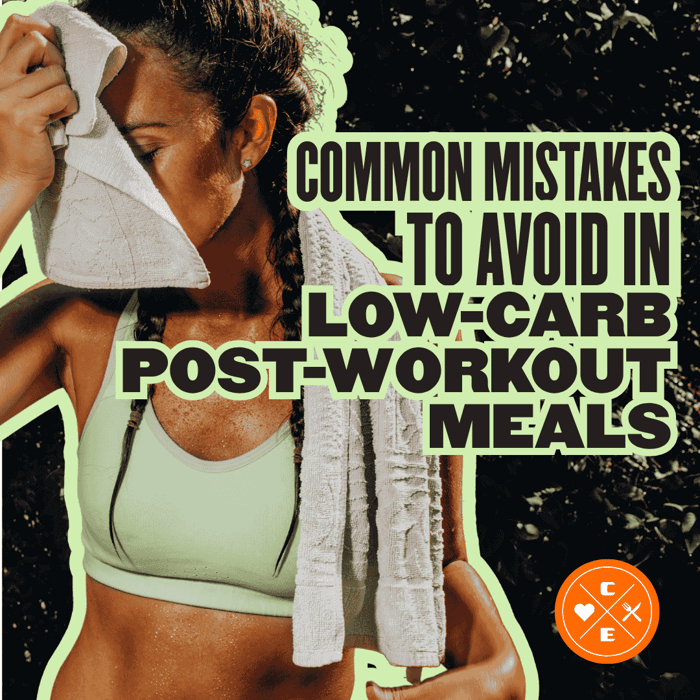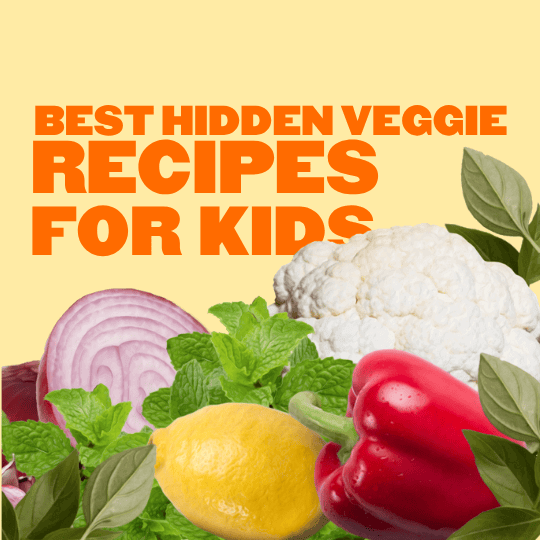Athlete's Guide to Anti-Inflammatory Eating

Jason Nista
Nutrition
07/03/2025 9:32am
18 minute read
Table of Contents
- Top 6 Anti-Inflammatory Post-Workout Foods for Athletes | Switch4Good
- Best Anti-Inflammatory Foods for Athletes
- Building an Anti-Inflammatory Meal Plan
- Clean Eatz Kitchen: Making Anti-Inflammatory Eating Easy for Athletes
- Lifestyle Habits That Boost Anti-Inflammatory Benefits
- Achieving Better Recovery and Performance
- FAQs
- FAQs
Inflammation can help or hurt your athletic performance. Acute inflammation aids recovery, but chronic inflammation slows you down, increases injury risk, and drains energy. The solution? Your diet. Anti-inflammatory foods can speed recovery, reduce soreness, and keep you performing at your best.
Key Takeaways:
- What to Eat: Focus on omega-3-rich fish (salmon, mackerel), berries, leafy greens, nuts, seeds, and spices like turmeric and ginger.
- Why It Matters: Endurance athletes can have 60x higher inflammation markers than non-athletes. Managing this through food reduces injury risk by up to 30%.
- Meal Timing: Eat nutrient-rich meals before and after workouts. Prioritize protein, carbs, and hydration for recovery.
- Meal Prep Tips: Batch-cook proteins, roast vegetables, and prep grains for quick, anti-inflammatory meals throughout the week.
Every meal is a chance to fight inflammation and enhance recovery. Small changes in your food choices can make a big difference in how you train and recover.
Top 6 Anti-Inflammatory Post-Workout Foods for Athletes | Switch4Good
![]()
Best Anti-Inflammatory Foods for Athletes
Now that you know why managing inflammation is important, let’s dive into specific foods that can help improve recovery and athletic performance. Adding anti-inflammatory foods to your diet not only provides essential nutrients but also helps counter the chronic inflammation we discussed earlier.
"Many experimental studies have shown that components of foods or beverages may have anti-inflammatory effects." – Dr. Frank Hu, Professor of Nutrition and Epidemiology at the Harvard School of Public Health
Incorporating foods rich in omega-3s, antioxidants, and probiotics while cutting back on processed sugars and saturated fats can make a big difference. Here's a closer look at some key food groups that actively combat inflammation.
Omega-3 Rich Foods
Fatty fish like salmon, mackerel, sardines, and anchovies are packed with EPA and DHA omega-3 fatty acids, which help interrupt the inflammatory process. For example, a 4-week study found that young men who consumed omega-3 supplements (about 3 grams, equivalent to a 4-ounce serving of Atlantic mackerel) experienced less muscle soreness and lower inflammation markers compared to a placebo group.
"Beyond the well-documented health benefits of Omega‑3s, they also play an important role in muscle strength, endurance, recovery, and injury prevention for athletes." – Brittany Johnson, Scientific Affairs Manager at GNC
Omega-3s also enhance muscle protein synthesis, improve oxygen flow, and reduce fatigue, making them a valuable tool for recovery. For instance, Kvarøy Arctic salmon provides over 2,000 mg of omega-3s in a 3½-ounce serving, along with high-quality protein and only about 200 calories. Aim for two servings of low-mercury fatty fish per week to meet your EPA and DHA requirements.
If you prefer plant-based options, walnuts, chia seeds, and flaxseeds are excellent sources of alpha-linolenic acid (ALA), which helps lower C-reactive protein (CRP), a key inflammation marker.
Pair these healthy fats with antioxidant-packed fruits and vegetables for well-rounded support.
Antioxidant-Rich Fruits and Vegetables
Colorful fruits and vegetables are powerful tools in reducing chronic inflammation. Berries such as strawberries, blueberries, blackberries, and raspberries are loaded with anthocyanins, which make them a great addition to smoothies, yogurt, or as a post-workout snack.
Tart cherry juice is another standout. A 2019 study showed that older adults who drank 16 ounces daily for 12 weeks had significantly lower CRP levels. Plus, tart cherry juice provides Vitamin C and potassium, which aid in electrolyte balance and recovery.
Leafy greens like kale, spinach, and broccoli are also excellent choices. Broccoli, in particular, contains sulforaphane, a compound that reduces inflammation by targeting cytokines and nuclear factor kappa B (NF-κB). Bell peppers, rich in Vitamin C, are another great option to support recovery.
Watermelon deserves a special mention for its L-citrulline content, which improves blood flow to muscles, boosts energy, and reduces soreness. It’s a hydrating and refreshing post-workout choice.
Nuts, Seeds, and Whole Grains
Nuts, seeds, and whole grains offer a mix of healthy fats, fiber, and essential minerals for recovery. Walnuts, almonds, chia seeds, and flaxseeds are especially effective, combining omega-3s and antioxidants to combat inflammation. Ground flaxseed and chia seeds are easy to add to oatmeal or smoothies.
Whole grains like quinoa and oats not only provide long-lasting energy but also contribute to reducing inflammation. Their fiber content supports a healthy gut microbiome, which plays a crucial role in controlling inflammation.
Anti-Inflammatory Spices and Special Foods
Spices like turmeric and ginger are well-known for their anti-inflammatory properties. Turmeric, with its active compound curcumin, has been shown to lower CRP levels, especially when paired with black pepper to enhance absorption. Add it to curries, smoothies, or golden milk tea for an easy boost.
Ginger is another versatile option, whether used in stir-fries, tea, or supplements. It’s particularly effective in reducing exercise-induced muscle pain.
Extra virgin olive oil, rich in monounsaturated fats and Vitamin E, is a staple for many athletes. It’s perfect for drizzling over salads or vegetables and adds both flavor and health benefits.
Probiotic-rich foods like plain Greek yogurt and kefir support gut health, which is key to managing inflammation. Choose unsweetened varieties for maximum benefits.
Even dark chocolate with at least 70% cacao can provide anti-inflammatory antioxidants when enjoyed in moderation.
Building meals around these foods equips your body to recover faster and perform at its best.
Here’s a quick summary of how these foods help reduce inflammation:
| Food Category | Top Examples | Key Benefits |
|---|---|---|
| Fatty Fish | Salmon, mackerel, sardines | Rich in EPA and DHA; reduces inflammation |
| Berries | Blueberries, tart cherries | High in anthocyanins; lowers CRP levels |
| Leafy Greens | Kale, spinach, broccoli | High in Vitamin C; contains sulforaphane |
| Nuts & Seeds | Walnuts, chia seeds, flaxseeds | Provide omega-3s and healthy fats |
| Spices | Turmeric, ginger | Contain curcumin and gingerol |
Building an Anti-Inflammatory Meal Plan
Craft a meal plan that supports your training goals while prioritizing recovery and overall health.
"Start by slowly making changes so that these become more of a lifestyle shift rather than 'going on a diet.' Try to eat fewer foods that come from packages and more that come from the ground."
- Liz Moore, Registered Dietitian at Harvard-affiliated Beth Israel Deaconess Medical Center
Your plan should be tailored to fuel performance, aid muscle recovery, and sustain endurance. Interestingly, over 60% of athletes abandon their meal plans within three weeks if they feel impractical or impersonal. A plan that aligns with your lifestyle is the key to long-term success.
Sample Meal Ideas
Breakfast Options
Kick off your day with a smoothie bowl featuring berries, flaxseed, Greek yogurt, and spinach. If you prefer something more filling, try overnight oats with chia seeds, walnuts, and strawberries.
For busy mornings, a sheet pan breakfast is a lifesaver. Roast sweet potato cubes and bell peppers, season with turmeric, and top with scrambled eggs. This combination delivers complex carbs, antioxidants, and quality protein.
Pre-Workout Fuel
About 60–90 minutes before your workout, focus on complex carbs paired with moderate protein. A slice of whole-grain toast topped with almond butter and banana is a great option. Add a small handful of berries for an antioxidant boost.
Post-Workout Recovery
Within 30 minutes after exercising, refuel with a mix of protein, carbs, and omega-3s to reduce inflammation and support recovery. A salmon and quinoa bowl with roasted broccoli and olive oil works perfectly. Alternatively, blend tart cherry juice with Greek yogurt and ground flaxseed for a quick recovery snack.
Dinner Ideas
Plan dinners around fatty fish at least twice a week. For example, mackerel paired with roasted vegetables seasoned with ginger and turmeric is an excellent choice for omega-3s. Plant-based meals are just as effective - a lentil curry loaded with turmeric, ginger, and colorful veggies provides protein, fiber, and anti-inflammatory benefits.
Once you’ve got meal ideas in place, efficient meal prep can help you stick to your plan all week long.
Meal Prep and Batch Cooking Tips
Simplify your week with batch-prepped staples:
- Smoothie Packs: Pre-portion ingredients like frozen berries, spinach, chia seeds, and ground flaxseed into freezer bags. When it’s time to blend, just add liquid.
- Batch Cook Proteins: Prepare proteins like salmon, chicken, or lentils in large quantities. Citrus-poached salmon works well in salads or grain bowls throughout the week. Breaded chicken strips can be made ahead and frozen before cooking.
- Roast Vegetables: Roast a variety of vegetables - think bell peppers, broccoli, sweet potatoes, and Brussels sprouts - seasoned with turmeric. These reheat easily and can be finished with fresh herbs or lemon.
- Cook Grains in Advance: Make quinoa, brown rice, or farro in bulk and store in portioned containers. These serve as a quick base for meals.
- Dressings and Sauces: Prepare anti-inflammatory dressings like olive oil with lemon and ginger, or make a Muhammara dip using roasted red peppers and walnuts for a flavorful spread or dip.
With these essentials prepped, you’ll save time and stay consistent with your plan.
Meal Timing and Balanced Nutrition
When you eat is just as important as what you eat. Proper meal timing can sustain energy, speed up recovery, and even improve sleep quality. Start by calculating your macronutrient needs based on your weight and activity level, then distribute them strategically throughout the day.
- Pre-Training Meals: Eat a substantial meal 2–3 hours before training, focusing on complex carbs and moderate protein. For a snack closer to your workout (30–60 minutes prior), choose something light and easy to digest.
- Post-Training Nutrition: While the "30-minute window" is often emphasized, what matters most is consistency. As Jamie Lee McIntyre, RDN, explains, "While it's ideal to eat these foods within about 30 minutes of a workout, it's more important to include them in every meal or snack".
- Daily Structure: Aim for balanced plates - half vegetables, one-quarter protein, and one-quarter starch. Active individuals should target 1.2–2.0 grams of protein per kilogram of body weight. For example, a 150-pound athlete (about 68 kg) would need roughly 82–136 grams of protein daily.
- Hydration Matters: Hydration isn’t just about water. Green tea provides antioxidants, while tart cherry juice offers anti-inflammatory benefits. During long workouts, replace electrolytes, as sweat can contain 200–2,000 mg of sodium per liter.
Delaying recovery foods by just two hours can reduce muscle glycogen replenishment by 50%. Sticking to a consistent schedule ensures optimal performance and recovery.
| Meal Component | Regular Diet | Athlete Meal Plan |
|---|---|---|
| Calories | Moderate | Higher (based on training) |
| Protein | Normal intake | Elevated for muscle repair |
| Timing | Flexible | Timed around training |
| Nutrients | Balanced | Focused on performance |
| Hydration | General | Closely monitored |
To make this approach sustainable, stock your kitchen with staples, create a flexible weekly template, and adjust to your schedule and preferences.
sbb-itb-1989a25
Clean Eatz Kitchen: Making Anti-Inflammatory Eating Easy for Athletes
![]()
If you're working on sticking to an anti-inflammatory meal plan, Clean Eatz Kitchen makes it simple to stay on track. They’ve created a service that connects busy athletes with chef-prepared meals designed to meet the anti-inflammatory standards highlighted earlier.
Clean Eatz Kitchen Meal Plan Options
Clean Eatz Kitchen offers meal plans tailored to support athletic recovery and performance. Their High Protein Meal Plan ($59.95) is packed with lean proteins to aid muscle repair, while the Weight Loss Meal Plan ($49.99) features meals under 600 calories that still provide essential nutrients in controlled portions.
For those looking for more control, the Build Your Meal Plan option ($53.95) allows you to customize your meals based on specific anti-inflammatory needs. You can choose options rich in omega-3 fatty acids, vegetables loaded with antioxidants, and whole grains from their rotating monthly menu. Every meal is crafted to include a balance of protein, carbs, and healthy fats, making meal planning a breeze.
Athletes with specific dietary needs aren’t left out, either. Clean Eatz Kitchen offers gluten-free meals and accommodates vegetarian and vegan preferences, ensuring everyone can stick to their anti-inflammatory goals.
For those needing a steady supply of meals, Bulk Boxes start at $205.00 for 30 meals. This option is ideal for athletes who train regularly and require consistent access to recovery-focused nutrition.
Convenient Nationwide Delivery
Clean Eatz Kitchen takes the hassle out of meal prep with its nationwide delivery service. Meals arrive frozen, have a shelf life of up to 12 months, and cost $8.99 per meal for orders over $85. With no subscription required, athletes can order as needed, whether during intense training seasons or quieter periods.
Customer feedback often highlights the convenience of the service. Many users appreciate the time saved by skipping meal prep, noting that the slight cost premium is well worth it. Plus, with delivery times averaging just three days, meals arrive fresh, retaining the anti-inflammatory benefits of ingredients like leafy greens and colorful vegetables.
How Clean Eatz Kitchen Supports Athletic Recovery
Clean Eatz Kitchen prioritizes recovery-friendly ingredients like fatty fish, antioxidant-packed vegetables, and spices known for their anti-inflammatory properties. For example, their meals often feature salmon, which delivers around 2.3 grams of omega-3s per 4-ounce serving. These omega-3s are key to reducing inflammation caused by exercise and aiding muscle recovery.
Their commitment to fresh, seasonal ingredients and avoiding processed foods aligns with anti-inflammatory principles. Meals frequently include vegetables like green beans, broccoli, red onions, and potatoes, which are rich in antioxidants and fiber to combat chronic inflammation. Additionally, spices like turmeric and ginger, known for their ability to reduce muscle soreness and damage, are a regular part of their recipes.
Success stories from customers highlight the impact of Clean Eatz Kitchen. In April 2025, Joseph H. shared his journey of losing 30 pounds over three months while maintaining muscle mass, thanks to Bulk Box orders.
With over 12,000 five-star reviews, Clean Eatz Kitchen has earned a reputation for combining convenience with high-quality nutrition. Athletes consistently praise the high protein content, balanced meals, and how seamlessly the service fits into their demanding schedules.
For athletes looking to maintain an anti-inflammatory diet without sacrificing time or quality, Clean Eatz Kitchen offers a practical and affordable solution that supports both health and performance.
Lifestyle Habits That Boost Anti-Inflammatory Benefits
Eating anti-inflammatory foods is a great start for athletic recovery, but your daily habits are just as important. Quality sleep, staying hydrated, and managing stress all work hand-in-hand with a balanced diet to improve recovery and performance.
Sleep and Recovery
Getting enough good-quality sleep is like giving your body a chance to hit the reset button. Sleep repairs tissues, balances inflammatory cytokines, and amplifies the effects of an anti-inflammatory diet. A study highlights this connection:
"Sleep and inflammation are bidirectionally linked, and this relationship is assumed to be important for the health and wellbeing of patients and the general population."
Without adequate rest, your body produces more inflammatory molecules, which can delay recovery. During sleep, cytokines - proteins that help your immune system fight infections and inflammation - are produced. Research has also shown that poor sleep quality is tied to higher levels of markers like interleukin-6 and tumor necrosis factor, both linked to inflammation.
To improve recovery, aim for a consistent sleep routine. Try calming activities before bed, like reading or taking a warm bath, to signal to your body that it’s time to wind down. Reducing screen time before bed can help maintain melatonin levels, and creating a sleep-friendly environment - dark, quiet, and cool - can make a big difference.
But sleep isn’t the only piece of the puzzle. Staying hydrated and managing stress are equally important for recovery.
Hydration and Stress Management
Water is essential for recovery. It acts as a delivery system, transporting nutrients like amino acids, electrolytes, and glucose to your muscles while flushing out waste. Since water makes up 55–65% of your body and 80% of joint cartilage , staying hydrated is non-negotiable. A good rule of thumb is to drink about half your body weight in ounces of water daily. For instance, a 150-pound athlete should aim for around 75 ounces of water spread throughout the day. If you’re sweating heavily or exercising for long periods, consider adding electrolytes or eating hydrating foods like cucumbers, watermelon, oranges, and leafy greens.
Dr. David Ferguson from Michigan State University's Motorsports Physiology Lab emphasizes:
"Hydration isn't just important for staying alert during a race. It's essential for ensuring that athletes recover properly and reduce their risk of injury in the long run."
Stress management is just as critical. High stress can increase cortisol levels, which disrupts sleep and slows recovery. Mindfulness practices, such as meditation, visualization, or gratitude journaling, can help lower cortisol and improve mental well-being. Even simple practices like mindful breathing or engaging in yoga or tai chi can break the stress-sleep disruption cycle, allowing your anti-inflammatory diet to work more effectively.
Achieving Better Recovery and Performance
Anti-inflammatory eating isn’t just a passing trend - it’s a powerful tool for improving athletic performance and speeding up recovery. Studies show that the right foods can help reduce muscle soreness, shorten recovery time, enhance endurance, and promote overall health. When paired with smart timing around workouts, this approach becomes even more effective.
Incorporating anti-inflammatory foods into your diet provides the nutrients your body needs to repair muscles, minimize cellular damage, and control inflammation. These foods are packed with antioxidants that shield your cells from the stress caused by exercise, helping to keep inflammation under control.
Timing plays a critical role here. Eating anti-inflammatory foods before and after exercise can amplify their benefits, helping to manage inflammation and support muscle recovery. Pair this with proper hydration and quality sleep, and you’ve got a solid recovery strategy that keeps you performing at your best.
As Liz Moore, a Registered Dietitian at Harvard-affiliated Beth Israel Deaconess Medical Center, puts it:
"Start by slowly making changes so that these become more of a lifestyle shift rather than 'going on a diet'".
This gradual shift makes it easier to stick to an anti-inflammatory eating plan, turning it into a sustainable part of your routine.
For those looking for convenience, Clean Eatz Kitchen offers a practical solution with chef-prepared meals featuring anti-inflammatory ingredients, delivered right to your door.
When combined with other key recovery strategies - like quality sleep, hydration, and stress management - an anti-inflammatory diet becomes part of a well-rounded plan. This holistic approach not only fuels your workouts but also supports your long-term athletic performance and overall health.
FAQs
What are the best ways to include anti-inflammatory foods in my pre- and post-workout meals?
To include foods that help combat inflammation in your pre- and post-workout meals, focus on options packed with nutrients that boost energy, aid recovery, and help reduce inflammation. For pre-workout meals, think about incorporating foods like oats, bananas, Greek yogurt, or smoothies made with spinach and berries to provide steady energy. For post-workout meals, include items like fatty fish (such as salmon or mackerel), leafy greens (like spinach or kale), berries (blueberries or strawberries), and nuts (almonds or walnuts) to ease muscle soreness and support recovery.
Looking for easy ways to make this work? Add a handful of berries to your yogurt, serve fatty fish as part of your dinner, or toss some leafy greens into your smoothie or salad. These simple additions not only help manage inflammation but also supply the nutrients your body needs to perform and recover at its best.
What are some easy meal prep tips for athletes to include anti-inflammatory foods in their diet?
For athletes juggling packed schedules, meal prepping anti-inflammatory foods doesn't have to be complicated. Start by including ingredients like fatty fish, leafy greens, berries, whole grains, and legumes in your plan. These are easy to prepare ahead of time and store for later. Think dishes like overnight oats, grilled salmon for salads, or snack boxes filled with nuts and fresh fruit.
Dedicate some time on slower days to plan and prep your meals. Stock your pantry with essentials such as olive oil, quinoa, and spices like turmeric and ginger - these not only boost flavor but also provide anti-inflammatory perks with minimal effort. Prepping in bulk and using portioned containers can help you save time and stick to your nutrition goals without added stress.
How do stress and sleep impact inflammation and athletic performance?
Stress and sleep are crucial when it comes to managing inflammation and boosting athletic performance. When you're under stress, your body releases hormones like cortisol, which can ramp up inflammation. Incorporating stress-relief practices like meditation, yoga, or deep breathing can help regulate these hormone levels and keep inflammation in check.
Sleep is just as vital. It's during those restful hours that your body repairs tissues and calms inflammation. If you're not getting enough sleep, inflammatory markers can rise, slowing down recovery and affecting your performance. Aim for 7–9 hours of quality sleep each night to support faster recovery and better athletic results.
Related Articles
Hydrating Foods to Add to Meal Prep
29 minute read
Common Mistakes in Low-Carb Post-Workout Meals
20 minute read
Best Hidden Veggie Recipes for Kids
22 minute read



